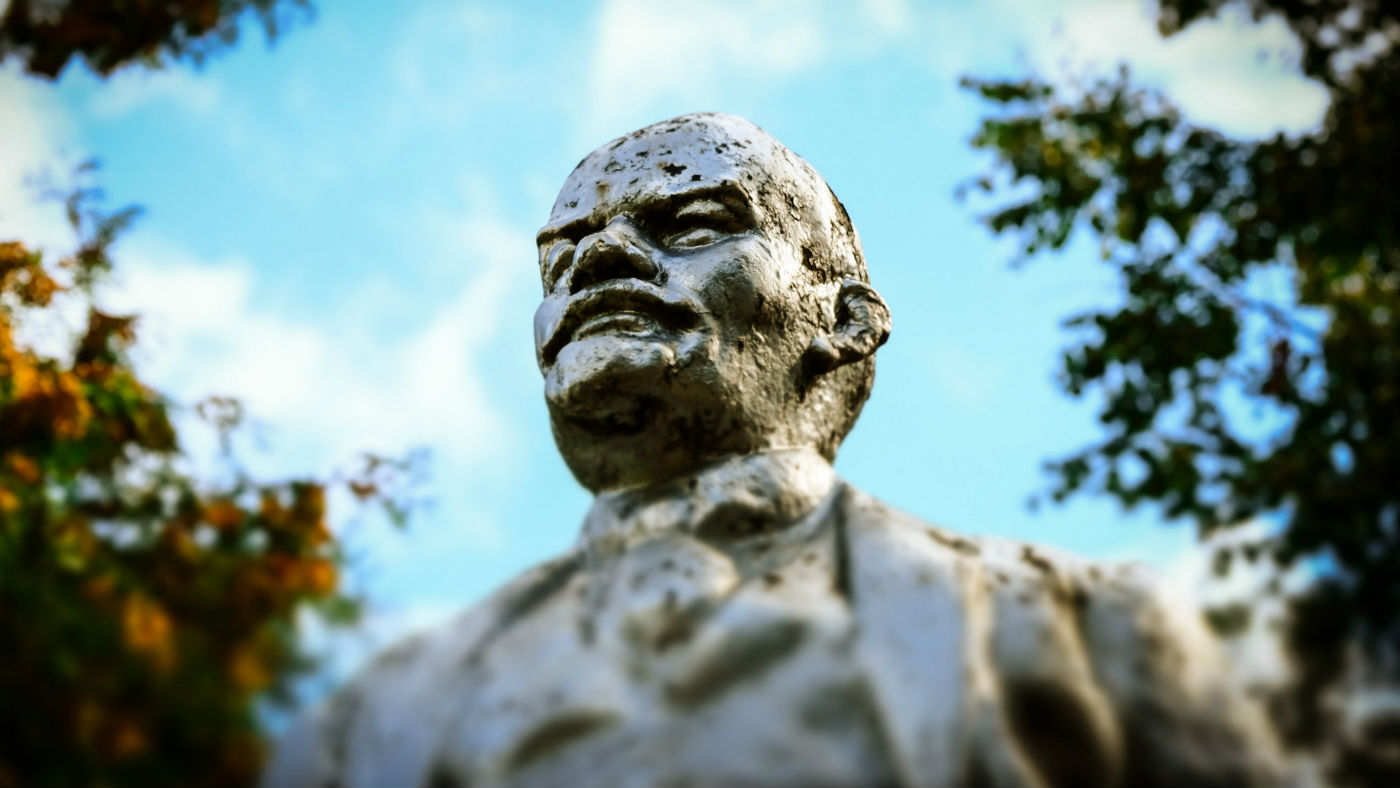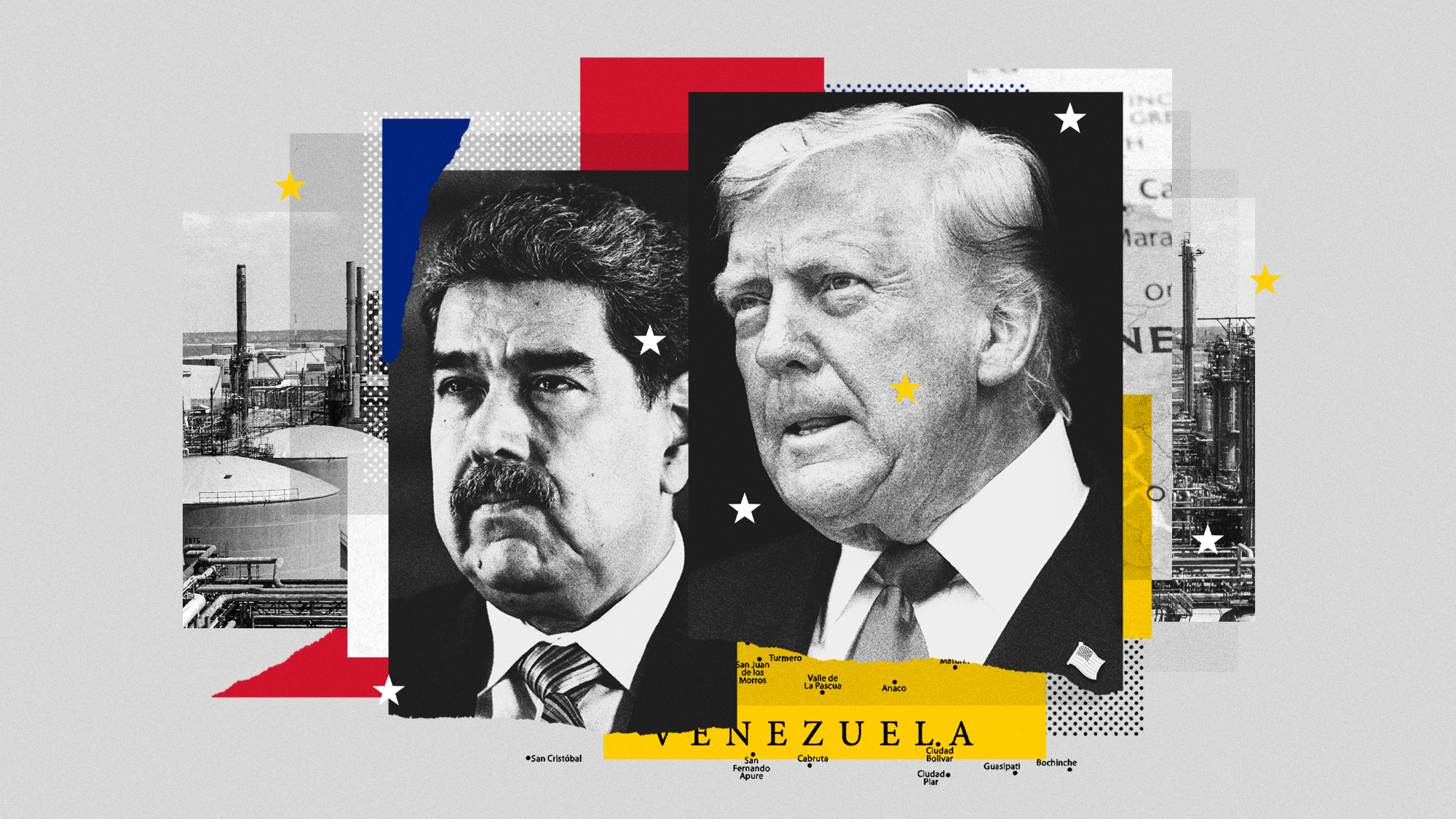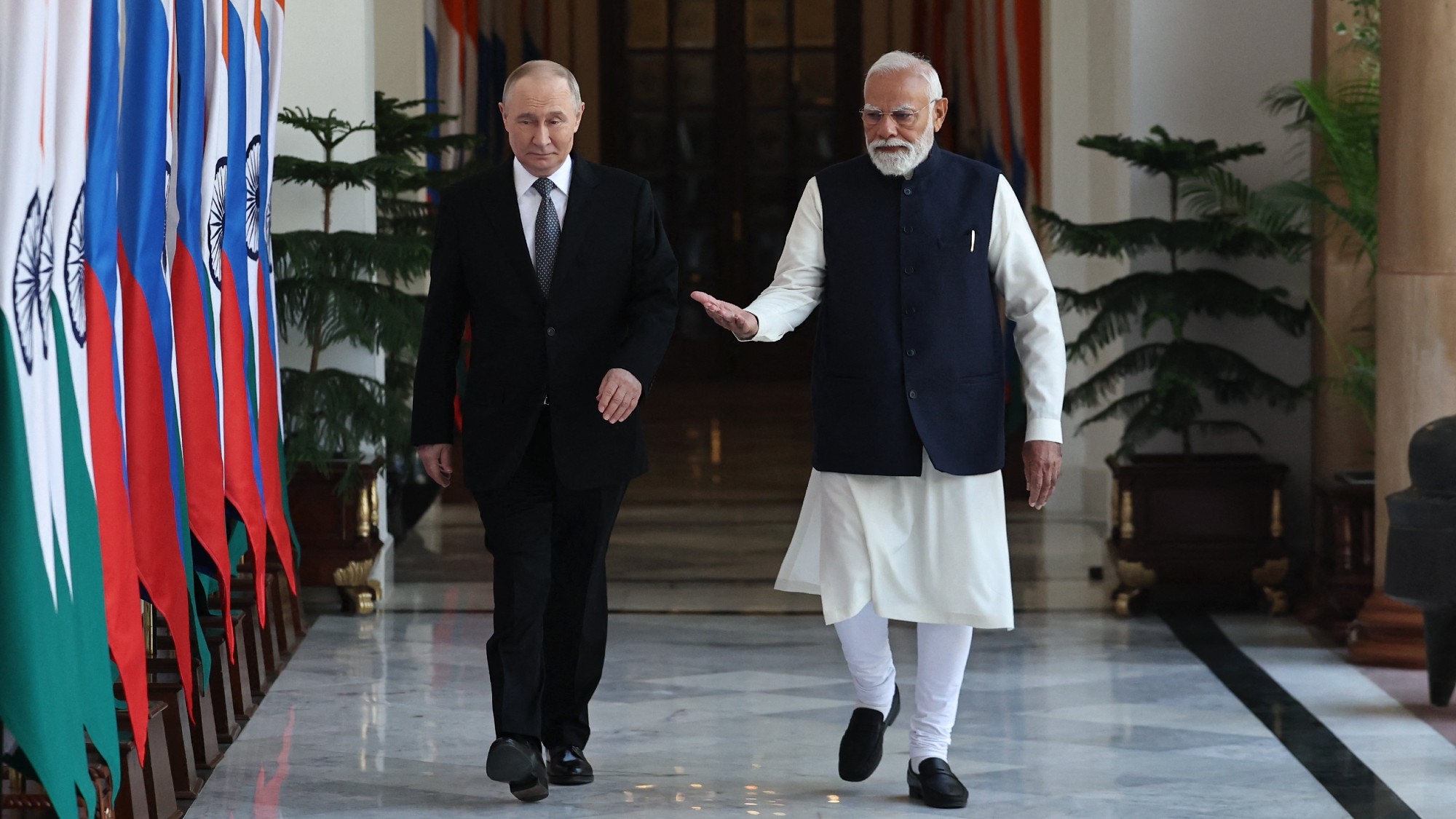How Russia forgot its revolution
Centenary of October Revolution to pass without fanfare from Kremlin and majority of Russians

A free daily email with the biggest news stories of the day – and the best features from TheWeek.com
You are now subscribed
Your newsletter sign-up was successful
The October Revolution was one of the defining moments of the last century. But 100 years to the day since the Bolsheviks stormed the Winter Palace and created the world’s first communist state, the vast majority of Russians seem not to care.
The world is still discussing the consequences of the revolution “but in Russia no one seems the least bit interested”, says Oliver Carroll in The Independent.
Ambivalence towards one of the most important events in Russian history goes all the way from the man in the street to the man in the Kremlin. The message from Vladimir Putin on the 100th anniversary “has been a muted condemnation of revolution as a political tool”, says The Guardian.
The Week
Escape your echo chamber. Get the facts behind the news, plus analysis from multiple perspectives.

Sign up for The Week's Free Newsletters
From our morning news briefing to a weekly Good News Newsletter, get the best of The Week delivered directly to your inbox.
From our morning news briefing to a weekly Good News Newsletter, get the best of The Week delivered directly to your inbox.
Speaking last month, Putin said: “When we look at the lessons from a century ago, we see how ambiguous the results were, and how there were both negative and positive consequences of those events.”
“We have to ask the question: was it really not possible to develop not through revolution but through evolution, without destroying statehood and mercilessly ruining the fate of millions, but through gradual, step-by-step progress?”
Unusually, the Kremlin has issued no official media line on the anniversary and state TV is expected to repeat the news blackout it observed on the anniversary of the February Revolution. Carroll says this means “the event does not exist”, effectively.
This mirrors the attitude of the Russian public in general. A recent opinion poll carried out by the Russian Academy of Sciences found almost one third of respondents were unable to say what they thought about the revolution. For many, the revolution and collapse of the Soviet system over a quarter of a century ago had little relevance to their lives today.
A free daily email with the biggest news stories of the day – and the best features from TheWeek.com
Mikhail Zygar, editor of the documentary web project 1917, writes that the Bolshevik Revolution does not fit into the empire narrative being pushed by the Kremlin.
Putin’s new empire isn’t quite Soviet, and it isn’t quite the empire of Tsar Nicholas II: “It has bits of everything thrown in it; the Second World War, Crimea, a bit of Stalin here, a bit of Orthodoxy there,” says the author.
Combined with a growing sympathy for the imperial family this means for Putin there is little propaganda gain from promoting the events of 1917.
“Reluctant to either promote Lenin’s message, in particular his leading of a government-toppling revolution,” Putin has introduced cooked up ‘Unity Day,’ to be celebrated each year on 4 November. Marking a pre-Soviet victory over Polish forces, “this now is meant to embody a collective spirit of Russia’s people, without encouraging revolutionaries”, says Newsweek.
“The crucial political point here,” writes Masha Lipman in the New Yorker, “is that, while the Communist-era narrative and Soviet leaders from Lenin to Gorbachev hailed the revolutionary rupture – the abrupt destruction of the ancien regime and the advent of the brave new world – Putin is deeply averse to any abrupt political shifts”.
“He is a distinctly anti-revolutionary conservative, deeply apprehensive of any grassroots challenge. To Putin, all signs of independent public activism and protest are a challenge to stability – specifically, the stability of his rule,” says Lipman. This was evidenced by the arrest of more than 400 pro-communist demonstrators in Moscow and St Petersburg over the weekend.
It is also the reason “why it is victory against Germany in 1945, not the Bolshevik Revolution of 1917 that is the founding myth of Putinist Russia”, according to Simon Sebag Montefiore, writing in The New York Times.
While the anniversary has received little attention from the Kremlin or the Russian public, it has once again raised the question of what to do with Lenin’s body, still on display in Red Square 93 years after his death, says The Moscow Times.
Calls for the embalmed Bolshevik to be buried have grown in recent years. Last month, Ksenia Sobchak, the reality television presenter turned presidential candidate, said she would bury Lenin’s body if she was elected president.
Last week, Chechnyan leader Ramzan Kadyrov said that it was “high time” to bury Lenin’s body, and called on Putin to put the issue to rest.
Gennady Zyuganov, the leader of the Russian Communist Party, has previously said Putin assured him Lenin’s body would not be buried so long as he is president. Yet in a typical example of the Kremlin’s approach to the Russian Revolution, the President’s spokesman recently refused to discuss the issue.
-
 What to know before filing your own taxes for the first time
What to know before filing your own taxes for the first timethe explainer Tackle this financial milestone with confidence
-
 The biggest box office flops of the 21st century
The biggest box office flops of the 21st centuryin depth Unnecessary remakes and turgid, expensive CGI-fests highlight this list of these most notorious box-office losers
-
 The 10 most infamous abductions in modern history
The 10 most infamous abductions in modern historyin depth The taking of Savannah Guthrie’s mother, Nancy, is the latest in a long string of high-profile kidnappings
-
 How corrupt is the UK?
How corrupt is the UK?The Explainer Decline in standards ‘risks becoming a defining feature of our political culture’ as Britain falls to lowest ever score on global index
-
 Trump’s ‘Board of Peace’ comes into confounding focus
Trump’s ‘Board of Peace’ comes into confounding focusIn the Spotlight What began as a plan to redevelop the Gaza Strip is quickly emerging as a new lever of global power for a president intent on upending the standing world order
-
 The high street: Britain’s next political battleground?
The high street: Britain’s next political battleground?In the Spotlight Mass closure of shops and influx of organised crime are fuelling voter anger, and offer an opening for Reform UK
-
 Trump considers giving Ukraine a security guarantee
Trump considers giving Ukraine a security guaranteeTalking Points Zelenskyy says it is a requirement for peace. Will Putin go along?
-
 What have Trump’s Mar-a-Lago summits achieved?
What have Trump’s Mar-a-Lago summits achieved?Today’s big question Zelenskyy and Netanyahu meet the president in his Palm Beach ‘Winter White House’
-
 Why, really, is Trump going after Venezuela?
Why, really, is Trump going after Venezuela?Talking Points It might be oil, rare minerals or Putin
-
 Moscow cheers Trump’s new ‘America First’ strategy
Moscow cheers Trump’s new ‘America First’ strategyspeed read The president’s national security strategy seeks ‘strategic stability’ with Russia
-
 Is a Putin-Modi love-in a worry for the West?
Is a Putin-Modi love-in a worry for the West?Today’s Big Question The Indian leader is walking a ‘tightrope’ between Russia and the United States